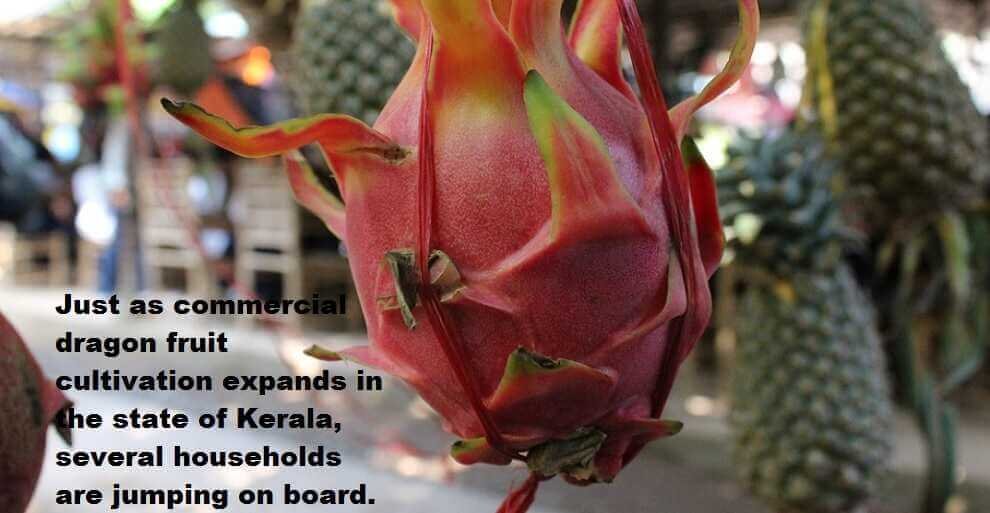When Rajan Varghese and his wife, Shailaja, plucked the first dragon fruit from their house’s terrace garden in Kanippayyur, Thrissur, it was a watershed moment. ‘We planted the stem last November and impatiently have been waiting for this day,’ Rajan had said.
Just as commercial dragon fruit cultivation expands in the state of Kerala, several households are jumping on board.
Also Read: Dragon fruit has been exported for the first time to the United Kingdom
Shamna PK, a school teacher from Lakshadweep’s Kavaratti, is patiently waiting for the plant on her terrace to bloom. ‘I wanted to try it out ever since I discovered you could grow it at home,’ Shamna says.
It is not just the appearance of the fruit that has piqued everyone’s interest. A low-maintenance climbing cactus vine that yields multiple harvests per year and has a lifespan of about 20 years. The emphasis on the fruit’s health benefits (it is high in antioxidants and fibers) ensures a good market and, as a result, reasonable profits. Another draw is the yellowish-green fragrant flower of dragon fruit.
‘It is typically grown on the ground, with sturdy material (such as a concrete pillar) for support and a ring-shaped structure (typically a tyre) for the vine to droop down. When growing it at home, however, you can plant it in grow bags, paint cans, or large containers.
Make sure that the vines have strong stalk support to climb and spread out in such a way that they are not bogged down by the weight of the fruits,’ says Hussan S, a dragon fruit stem cuttings seller from Mukkom, Kozhikode.
On the terrace of his home and shop, which covers approximately 3,400 square feet, there are over 400 plants. ‘It is my mission to popularise dragon fruit farming. In addition to planting them in containers and grow bags, I am growing them on soil laid out on my shop’s terrace,’ he adds.
Also Read: God’s Crown Fruit, popularity in India for its medicinal prosperities
Hussan gained more customers after YouTube videos of his nursery surfaced. ‘There was a significant increase in the number of clients during and after the lockdown. In the last year, I’ve sold over 20,000 stems. Only a few of them have used it to start farms,’ Hussan says.


















Add Comment